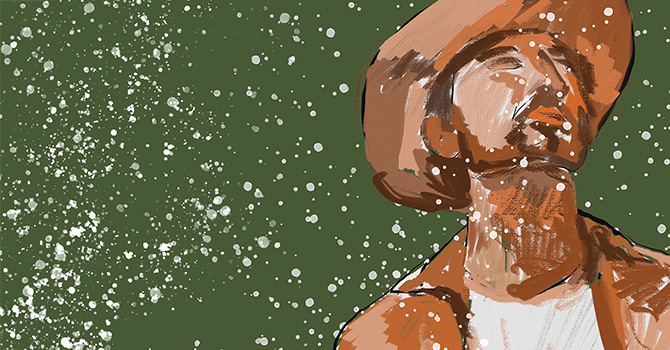I used to think African orphans should simply be pitied. Sympathy naturally wells up at the mention of 25 million orphans in Africa due to HIV/AIDS. Such pity is not inappropriate of course. The teenagers who are left to raise multiple younger siblings face almost insurmountable odds.
The problem is that my response stopped with pity. I assumed that my responsibility as a Christian ends when my bleeding heart squeezed a dime out of my wallet.
Then I met some actual AIDS orphans. And in fact, the ones I have met deserve to be imitated more than pitied. Up close, their pain is more real and their future has more hope.
ZOE ministry is an empowerment program created by a woman named Epiphanie, a Rwandan genocide survivor. She calls the program Giving Hope because it brings orphans out of isolation into groups of families, teaching them how to grow their own food and start small businesses. The program helps orphans become self-reliant within three years. I recently went to Kenya with ZOE and met orphans who are also barbers, farmers, seamstresses. One even runs a rock quarry business.
The most impressive business that I saw was a group bakery near Maua, Kenya called the Blessings Bakery. The bags that they sell are full of doughy pockets of sweet bread heaven that have recently come out of a vat of fried oil.
The baker is a 19-year old orphan named Davis. He takes care of younger siblings who are 17, 15 and 13. Through Giving Hope, Davis now has a small restaurant that his sister runs and some vegetables growing in and around his house that he can eat and sell. His primary income is $3 per day that he makes with the bakery.
When ZOE first started working with orphans, we expected the kind of success that allows for slow and steady economic and spiritual development for the orphans in our program so that they will not require any more aid after three years.
We underestimated the heart of these orphans. We did not expect them to reach out to other orphans. We foolishly thought that these African orphans would act “responsibly” (that is, like we wanted) and slowly save their money, ensuring that they will have food to eat for many years to come. This is not how Davis acted.
Davis had an orphan friend named Sqberio (pronounced skw-ah-berry-oh) who was left to take care of his two younger siblings. They were hungry. So Davis gave Sqberio half of his salary every day to train him to be the second baker of Blessings Bakery. In churches in the US, we struggle to convince our church members to give 3%. Davis gave 50%.
When we asked Davis why he had done this, he did not seem to understand the question. Evidently, giving what you have is the only thing to do when your friend is hungry. Not only did Davis give up half of his salary, but he opened up a bank account and they go and deposit the money together every week. On their way to the bank and back, Davis teaches him about Jesus. Now the bakery employs both orphans at full salary.
I have no interest in making Davis pitiful. I have an interest in making myself more like Davis. Does it not sound like our God to turn the orphan’s mite into a challenge to all those of us who follow the risen savior?
Psalm 146 says that God “upholds the orphan and the widow.” I know that most of us do not need Davis’ $3. But I promise you that we need his God.
Arthur is the Interim Director of Church Relations for ZOE Ministry, a program of the North Carolina Conference of the United Methodist Church. He is a provisional elder in the North Texas conference of the UMC.





